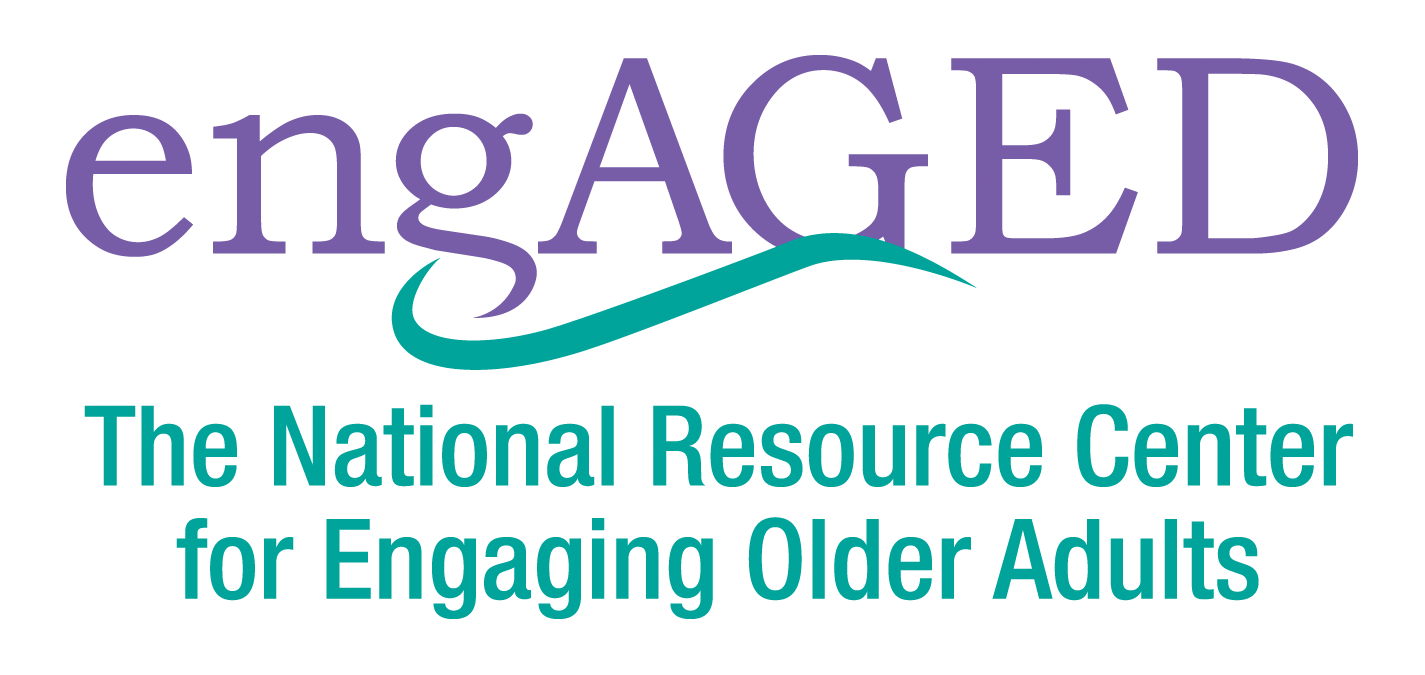Serving People Living with Dementia: Takeaways from the September engAGED Webinar
The September engAGED webinar highlighted programs and interventions Aging Network and partner organizations can replicate to help people living with dementia and caregivers stay socially engaged.
Setting the Stage
Living with dementia and caring for someone living with dementia can be lonely and isolating experiences with the disease itself and changes experienced by the person and family unit contributing to feelings of loneliness and isolation. According to the Rush Alzheimer’s Disease Center, people with dementia may feel alone, isolated, ignored, disregarded and left behind, while family members experience their own feelings of loneliness in addition to abandonment, grief and even anger. Creating spaces and opportunities for connection and community can help enhance the lives of those living with dementia and their caregivers.
Memory Cafés
Memory cafés are one way to offer connection and community to people living with dementia and their caregivers. A memory café is a social gathering for individuals living with dementia and their care partners that is designed to be a safe and welcoming environment. It is not meant to serve as a support group or educational support group, but instead a social place for people to find understanding and acceptance. Dementia Capable Southern Arizona—which is within the Pima Council on Aging in Tucson, AZ—currently provides two memory cafés in Pima County that offer music, art and other activities for people living with dementia and their caregivers. The Pima Council on Aging recommends that organizations interested in offering memory cafés connect with the JF&CS Memory Café Percolator to access information and tools to help with starting and sustaining memory cafés. Once organizations are ready to launch a memory café, Pima Council on Aging suggests listening to participants about what types of activities they are interested in, holding regular meetings with facilitators to determine what activities work well, organizing a launch party with media involvement and connecting to local universities or colleges for potential volunteers.
Evidence-Based Psychosocial Intervention
Another intervention that provides people living with dementia with opportunities for social connection is Cognitive Stimulation Therapy (CST), an evidence-based group intervention for people with mild to moderate dementia. The Perry County Memorial Hospital in Perryville, MO, offers approximately 17 sessions of CST each week. CST consists of 14 themed sessions focusing on a topic or activity such as word association, categorization, current affairs, food and number games. Each hour-long CST session typically occurs twice each week for seven weeks and provides a space for a positive and stimulating social experience. Two facilitators run each group, which includes about five to eight participants. The program aims to improve cognitive functioning using techniques that exercise different cognitive skills through executive functioning tasks, multi-sensory stimulation and reminiscence. There are a variety of CST delivery methods including group, individual and virtual options. Organizations interested in implementing CST can contact the Saint Louis University’s Gateway Geriatric Education Center Gateway Education Center CST training and education team to learn more about training opportunities.
Tips for Creating Community and Connection
To help create community for people living with dementia and caregivers, Rush Alzheimer’s Disease Center shared the following tips.
Create opportunities for people with dementia to interact with others.
Encourage each person’s ability to share their stories without judgment.
Recognize and value what each person brings to the community.
Purposely consider community in all interactions with people.
Encourage love, laughter and support.
Additional Resources
To learn more about serving people living with dementia and their caregivers, listen to the webinar recording and view the webinar slides.
Organizations can also turn to Dementia Friendly America and the Dementia Friends USA program for more ways to support older adults, people with disabilities and caregivers who are affected by dementia.
